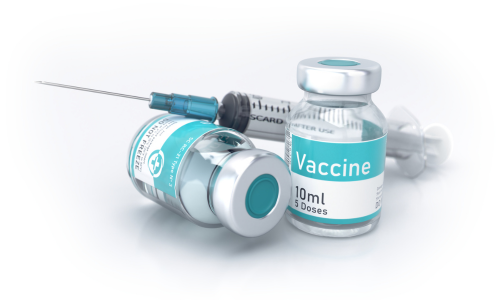Modern business depends on a healthy supply ecosystem powered by goods transportation. Many of these products, like pharmaceuticals and dangerous goods, require temperature-controlled shipping environments to ensure their integrity and safety. Klinge Corporation is the leading innovator in the transport refrigeration industry with the solutions you need for confident, compliant shipments.
The Importance of Temperature Control in the Transportation of Sensitive Products
Temperature-controlled transportation environments are crucial for many goods people and businesses rely on daily.
What Are Temperature-Sensitive Medical Products?
Temperature-sensitive medical products (TSMP) include goods like blood and tissues, pharmaceuticals and some reagents. Most vaccines require a limited temperature range between 2 and 8 degrees Celsius (36 to 46 degrees Fahrenheit) during short-term storage and transportation. The World Health Organization estimates that up to 50% of all vaccines globally go to waste, reinforcing the need for viable cold-chain solutions in pharmaceutical industries.
What Are Temperature-Sensitive Dangerous Goods?
Many materials can fall into the category of temperature-sensitive dangerous goods, including those from:
- Class 3 combustible and flammable liquids
- Class 4.1 Self-Reactive substances (adhesives, resins, etc.)
- Class 5.1 and 5.2 oxidizing agents and organic peroxides
- Class 6 toxic substances
- Class 8 corrosives
Some common sensitive freight includes several epoxies, phenol, acetic acid and propionic acid.
Importance of Maintaining Temperature Control During Transportation
Temperature excursions, where goods are exposed to temperatures outside of recommendations, substantially impact safety. For example, medications that reach too hot or cold extremes can lose their ability to treat illness and disease effectively.
A similar safety risk occurs when transporting temperature-sensitive chemical substances where extremes can alter their makeup and properties. For example, organic peroxides can produce an exothermic reaction outside the recommended temperature window, leading to possible fire or explosion.
Product waste and regulatory noncompliance penalties for improperly maintained temperatures are additional risks. Both can create financial losses.
The Role of Refrigeration Units in Maintaining Temperature Control
Refrigerated containers — called reefers — are instrumental in the transportation of temperature-sensitive goods. These solutions act as large refrigerators with a power system that generates and circulates chilled air within. These units maintain precise temperatures based on the preset levels you choose.
At Klinge Corporation, we can also outfit reefers with advanced technology that monitors the containers’ environments and locations. You’ll have real-time remote access to sensor data so you can act quickly to protect your shipment if changes occur.
Overcoming Challenges in Temperature-Controlled Transportation
Many challenges exist in transporting temperature-sensitive cargo, but excellent solutions are available to overcome these issues.
Common Challenges in Temperature-Controlled Transport
External factors often present the most significant challenge with temperature-controlled transport, including:
- Varying climates: Goods often travel by various methods that expose them to weather events and shifts in climate, humidity and temperature.
- Mechanical failure: Environmental control systems regulating container temperature can malfunction, quickly leading to extremes.
- Jurisdictional differences: Products traveling across borders may have differing temperature or compliance requirements and experience costly delays in clearing customs.
- Seasonal fluctuations: Seasonal temperature changes require extra shipping precautions during certain times of the year for especially sensitive cargo.
Solutions for Overcoming These Challenges
Klinge Corporation specializes in creating robust and reliable temperature-control solutions to resolve these challenges. Our options include:
- Refrigerated units for sea and ISO-spec containers, several with generator systems for extra peace of mind.
- Tank container refrigerated or heated units, including ATEX-compliant explosion-proof selections.
- Deep-freeze units capable of maintaining temperatures as low as -70 degrees Celsius (-94 degrees Fahrenheit) for protecting perishables like meats and seafood as well as pharmaceutical products.
We also offer a complete lineup of solutions that meet military specifications and containers for the oil and gas industry that are DNV 2.7-1 and EN 12079-certified.
Adherence to Regulations in the Transportation of Temperature-Sensitive Products
Regulations for transporting temperature-sensitive goods can differ between locations and involve several agencies and standards.
Regulations for Transporting Temperature-Sensitive Products
The World Health Organization generally publishes the recommended temperature models for pharmaceutical product transport, and most pharmaceutical companies establish internal quality assurance procedures to protect the integrity of their shipments.
Other agencies that provide specific transport or storage guidelines include the United States Food and Drug Administration (FDA), which oversees the pharmaceutical industry. The International Air Transport Association has authority over air freight and a comprehensive set of Temperature Control Rules (TCRs) to follow.
For marine-based cargo, The International Maritime Dangerous Goods (IMDG) code applies to all shipments containing hazardous or potentially hazardous products. This framework is a globally accepted code revisited and amended as needed every two years based on industry changes.
Importance of Compliance
Complying with the regulations helps ensure your goods arrive in the proper condition and on time, which reduces loss potential and enhances customer service. Noncompliance can lead to delivery delays and product waste. For example, improper documentation can cause goods to sit in customs. A failure to follow the rules can also result in financial fines and penalties, plus an erosion of customer trust.
Manufacturers and Logistics Providers’ Roles in Temperature-Sensitive Product Transportation
Both manufacturers and logistics providers must take several steps to preserve the integrity and safety of temperature-sensitive cargo.
The Role of Manufacturers
Manufacturers of temperature-sensitive goods have numerous responsibilities, beginning with selecting the proper packaging and shipment method for their products. The options you choose must meet governmental and carrier regulations to protect product quality.
You must accurately mark and label all goods, including any special handling instructions, to avoid delays and temperature excursions. The exact requirements can vary based on the product type, carrier and regulation. For example, you may need a certain label color or size to safeguard against a refused consignment. You should also submit correct documentation for goods leaving or entering the country to prevent U.S. Customs from detaining the shipment, which could lead to product loss.
Finally, you must ensure cold-chain storage and transport are available throughout the shipping and distribution process and that you have goods traceability. Having ready solutions at each step of the journey and proving that temperatures were correctly maintained supports the delivery of safe, high-quality products.
The Role of Logistics Providers
The primary role of logistics providers in temperature-controlled shipments is to ensure they adhere to specialized handling instructions and maintain an accurate environment during storage and transport. Doing so may include following Good Distribution Practice standards and other regulations by offering solutions like:
- Reefer containers
- Refrigerated docks
- Temperature-controlled warehouses
Logistics companies can also provide robust goods protection with temperature-monitoring sensors. This technology continuously tracks a shipment’s environment and triggers an alert when temperatures approach the edges of the acceptable range. The early warning they provide allows for faster intervention that can prevent excursions and reduce product loss potential. Additionally, the ongoing monitoring supports manufacturers’ compliance and documentation efforts.
Discuss Your Needs With a Klinge Corporation Specialist
Since 1984, Klinge Corporation has been helping companies like yours deliver high-quality, high-integrity products with reliable temperature-controlled transport solutions. Our team has the industry expertise to recommend the best option for your sensitive freight, so you can ship with compliance and safety confidence.
Talk to a specialist by contacting us online or requesting a custom quote.


